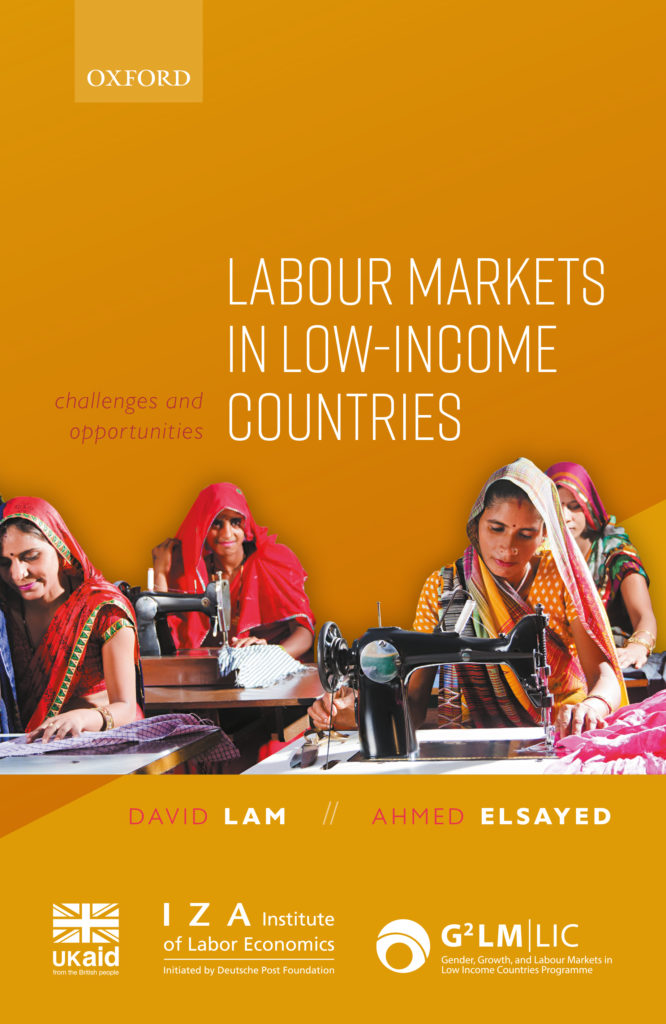“Labour Markets in Low-Income Countries: Challenges and Opportunities”
Poverty, informality and rural labour, skills training and behaviour, gender inequality, youth and child labour, and migration are some of the most pressing issues affecting labour markets in low-income countries. Which development policies will work and which strategies are likely to fail in these poorest countries?
Based on numerous studies and policy recommendations that have emerged from the joint IZA/FCDO “Growth, Gender, and Labour Market in Low-Incomes Countries” (G2LM|LIC) research initiative, David Lam (GLM|LIC’s founding director) and Ahmed Elsayed (IZA’s deputy program director) have recently published a book on Labour Markets in Low-Income Countries: Challenges and Opportunities. Drawing on the results of new evaluation studies, the authors provide an in-depth discussion of current development programs and infer key policy lessons.
On February 23, 2022, G2LM|LIC officially launched the book with an online event. The event brought together researchers and policy makers to discuss emerging evidence and different topics related to labour markets in low-income settings. After introductions by FCDO Social Development Adviser Benedetta Musillo and IZA Chief Executive Director Hilmar Schneider, David Lam and Ahmed Elsayed gave an overview of the GLM|LIC and G2LM|LIC initiative as well as gained insights of labour markets in low-income countries. Following that, GLM|LIC researchers Markus Goldstein (World Bank), Pamela Jakiela (Williams College), and Mushfiq Mobarak (Yale University) gave short presentations on the findings of their work related to building entrepreneurial success, credit constraints and occupational choice, and seasonal poverty, credit, and remittances. Lastly, the event concluded with a high-level policy discussion. Issues raised by panellists Ernest Aryeetey (African Research Universities Alliance), Louise Fox (The Brookings Institution and UC Berkeley), Adnan Khan (FCDO), and Vera Songwe (United Nations Economic Commission for Africa). The issues discussed included, among others, improving policies to address youth unemployment, the effects of automation and skill-biased technological change on labour markets in low-income countries, and anchoring labour market policies to ignite, generate, and sustain economic growth.
For more on the presentations and discussions, please visit this webpage.
